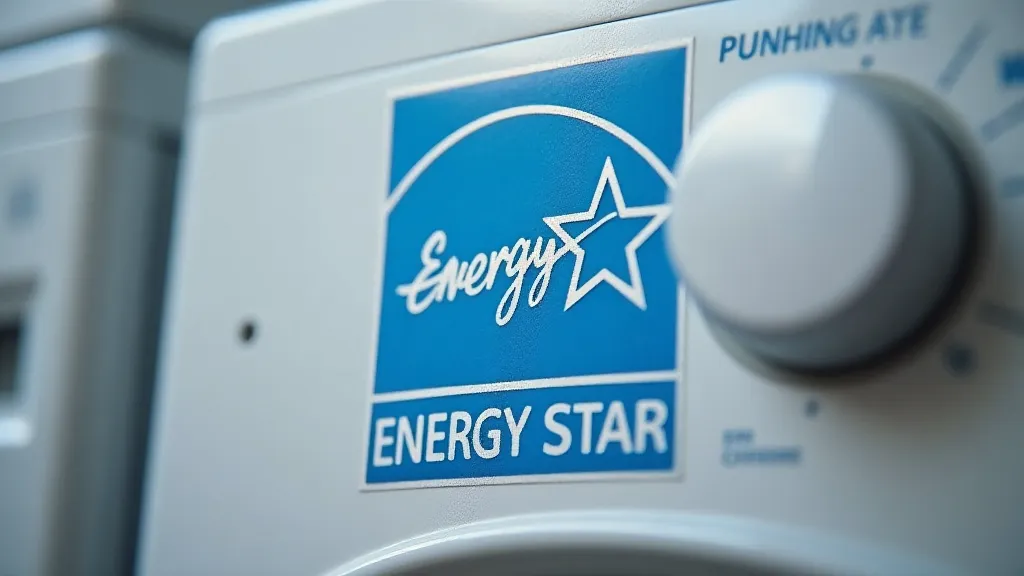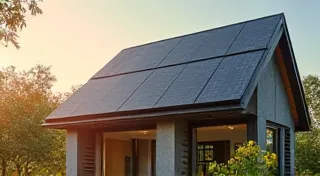Energy-Efficient Appliances: Saving Money & Reducing Your Impact
Living a sustainable lifestyle isn’t just about recycling or composting – it’s about making conscious choices in all areas of your life. One significant area where you can make a big difference is in your home, particularly through the appliances you choose. Investing in energy-efficient appliances isn’t just a feel-good decision; it’s a financially savvy one too! Let's explore how choosing wisely can benefit both your wallet and the planet.
Why Energy-Efficient Appliances Matter
Traditional appliances consume a considerable amount of energy. This energy often comes from sources that contribute to greenhouse gas emissions, negatively impacting the environment. When you switch to energy-efficient models, you directly reduce your carbon footprint. Beyond the environmental benefits, these appliances often come with lower running costs, saving you money on your utility bills over their lifespan.

Understanding Energy Efficiency Ratings
So, how do you know which appliances are truly energy-efficient? Look for the Energy Star label! This label is your guide, indicating that the appliance meets strict energy performance guidelines set by the U.S. Environmental Protection Agency (EPA). Energy Star-certified appliances use significantly less energy than standard models. Besides the Energy Star label, familiarize yourself with:
- EnergyGuide Label: This label provides estimated annual energy consumption and operating costs, allowing you to compare models directly.
- SEER Rating (Seasonal Energy Efficiency Ratio) for Air Conditioners and Heat Pumps: Higher SEER ratings indicate greater efficiency.
- MEF Rating (Modified Energy Factor) for Furnaces: Similar to SEER, a higher MEF indicates better energy performance.
Appliances to Focus On
While *any* energy-efficient appliance is a step in the right direction, some are particularly impactful. Consider upgrading these first:
- Refrigerators: Refrigerators run 24/7, so even small efficiency gains can translate to substantial savings.
- Washing Machines & Dryers: Front-loading washing machines are generally more energy-efficient than top-loading models. Look for dryers with moisture sensors to prevent over-drying.
- Dishwashers: Energy Star dishwashers use less water and energy per cycle.
- Ovens & Ranges: Induction cooktops are incredibly energy-efficient compared to electric or gas alternatives.

Beyond the Purchase: Optimizing Appliance Use
Even the most efficient appliances can waste energy if not used properly. Here are some simple tips:
- Wash full loads: Avoid running the dishwasher or washing machine with small loads.
- Air dry dishes and clothes: Whenever possible, skip the dryer and let your clothes and dishes air dry.
- Clean refrigerator coils: Dust accumulation on refrigerator coils reduces efficiency. Clean them regularly.
- Adjust refrigerator temperature: Set your refrigerator to the recommended temperature (around 37-40°F) and your freezer to 0°F.
- Unplug electronics: Many electronics consume energy even when turned off (phantom load). Unplug them when not in use.
Long-Term Savings & Sustainability
Investing in energy-efficient appliances might require a slightly higher upfront cost, but the long-term savings in energy bills and the positive impact on the environment make it a worthwhile investment. By making informed choices and practicing energy-saving habits, you can create a more sustainable home and contribute to a healthier planet. Switching to energy-efficient appliances is a significant and achievable step towards a more eco-friendly lifestyle and is a core component of a commitment to sustainable living. Consider the overall lifecycle of appliances when making choices – durability and repairability are key to long-term sustainability.






